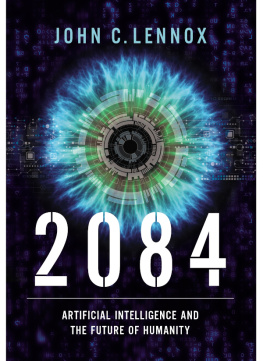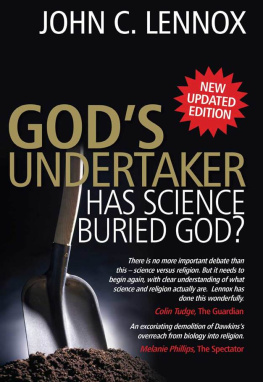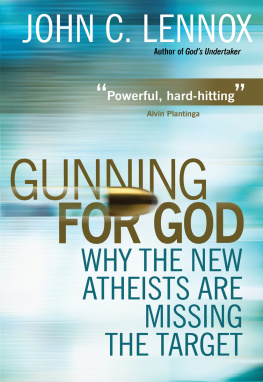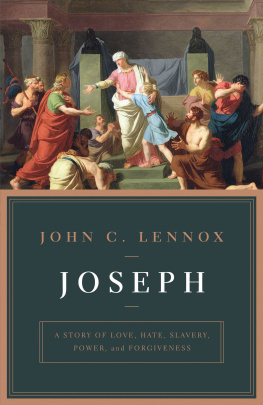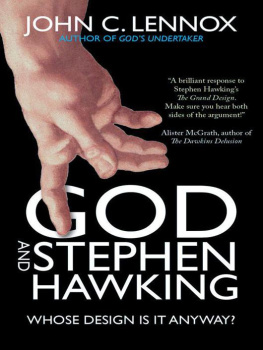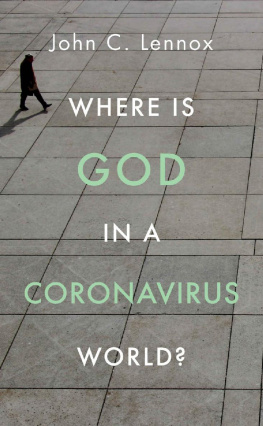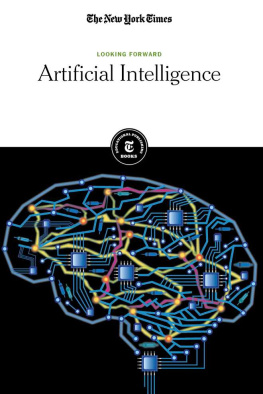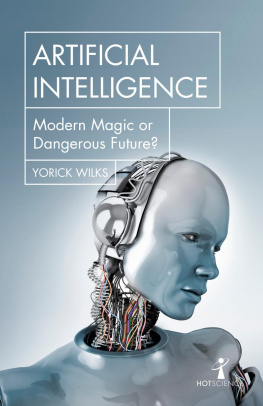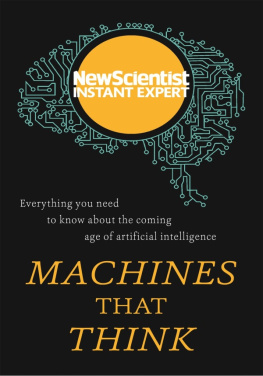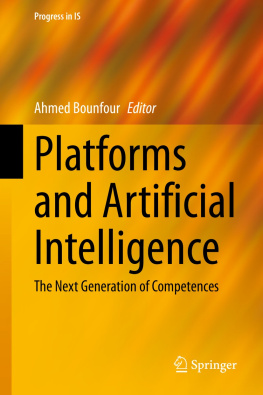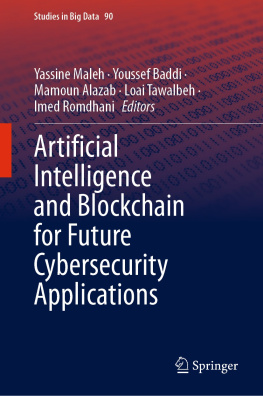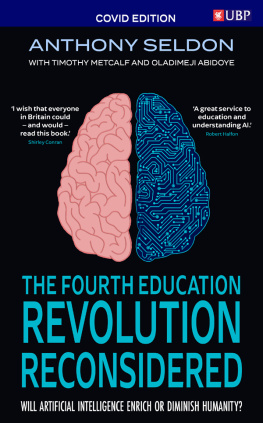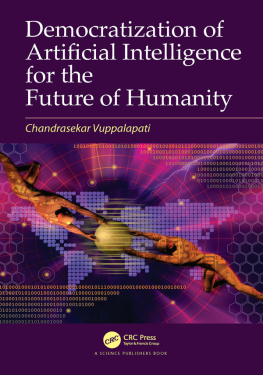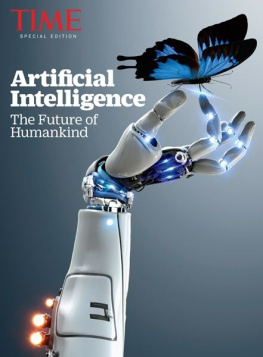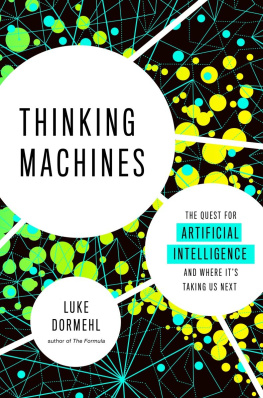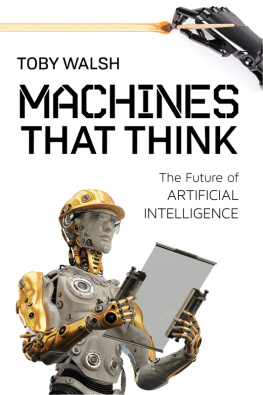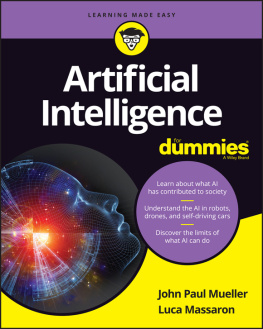John C. Lennox - 2084: Artificial Intelligence and the Future of Humanity
Here you can read online John C. Lennox - 2084: Artificial Intelligence and the Future of Humanity full text of the book (entire story) in english for free. Download pdf and epub, get meaning, cover and reviews about this ebook. year: 2020, publisher: Zondervan, genre: Romance novel. Description of the work, (preface) as well as reviews are available. Best literature library LitArk.com created for fans of good reading and offers a wide selection of genres:
Romance novel
Science fiction
Adventure
Detective
Science
History
Home and family
Prose
Art
Politics
Computer
Non-fiction
Religion
Business
Children
Humor
Choose a favorite category and find really read worthwhile books. Enjoy immersion in the world of imagination, feel the emotions of the characters or learn something new for yourself, make an fascinating discovery.
- Book:2084: Artificial Intelligence and the Future of Humanity
- Author:
- Publisher:Zondervan
- Genre:
- Year:2020
- Rating:5 / 5
- Favourites:Add to favourites
- Your mark:
- 100
- 1
- 2
- 3
- 4
- 5
2084: Artificial Intelligence and the Future of Humanity: summary, description and annotation
We offer to read an annotation, description, summary or preface (depends on what the author of the book "2084: Artificial Intelligence and the Future of Humanity" wrote himself). If you haven't found the necessary information about the book — write in the comments, we will try to find it.
2084: Artificial Intelligence and the Future of Humanity — read online for free the complete book (whole text) full work
Below is the text of the book, divided by pages. System saving the place of the last page read, allows you to conveniently read the book "2084: Artificial Intelligence and the Future of Humanity" online for free, without having to search again every time where you left off. Put a bookmark, and you can go to the page where you finished reading at any time.
Font size:
Interval:
Bookmark:

ZONDERVAN REFLECTIVE
2084
Copyright 2020 by John C. Lennox
Requests for information should be addressed to:
Zondervan, 3900 Sparks Dr. SE, Grand Rapids, Michigan 49546
ePub Edition April 2020: ISBN 978-0-310-10958-7
All Scripture quotations, unless otherwise indicated, are taken from the ESV Bible (The Holy Bible, English Standard Version). Copyright 2001 by Crossway, a publishing ministry of Good News Publishers. Used by permission. All rights reserved.
Scripture quotations marked NIV are taken from The Holy Bible, New International Version, NIV. Copyright 1973, 1978, 1984, 2011 by Biblica, Inc . Used by permission of Zondervan. All rights reserved worldwide. www.Zondervan.com. The NIV and New International Version are trademarks registered in the United States Patent and Trademark Office by Biblica, Inc .
Scripture quotations marked KJV are taken from the King James Version. Public domain.
Any internet addresses (websites, blogs, etc.) and telephone numbers in this book are offered as a resource. They are not intended in any way to be or imply an endorsement by Zondervan, nor does Zondervan vouch for the content of these sites and numbers for the life of this book.
No part of this publication may be reproduced, stored in a retrieval system, or transmitted in any form or by any means electronic, mechanical, photocopy, recording, or any other except for brief quotations in printed reviews, without the prior permission of the publisher.
Published in association with the literary agency of Mark Sweeney & Associates, Chicago, Illinois 60611.
Cover design: Studio Gearbox
Cover photo: Juergen Faelchle; Raevsky Lab; Omelchenko/Shutterstock
Interior design: Kait Lamphere
20 21 22 23 24 24 25 26 /LSC/ 15 14 13 12 11 10 9 8 7 6 5 4 3 2 1
Please note that footnotes in this ebook may contain hyperlinks to external websites as part of bibliographic citations. These hyperlinks have not been activated by the publisher, who cannot verify the accuracy of these links beyond the date of publication.
To all grandchildren, including my own ten Janie Grace, Herbie, Freddie, Sally, Lizzie, Jessica, Robin, Rowan, Jonah, and Jesse in the hope that it will help them face the challenges of an AI-dominated world.
CHAPTER 1
Mapping Out the Territory
CHAPTER 2
First Big Question: Where Do We Come From?
CHAPTER 3
Second Big Question: Where Are We Going?
CHAPTER 4
Narrow Artificial Intelligence: The Future Is Bright?
CHAPTER 5
Narrow AI: Perhaps the Future Is Not So Bright After All?
CHAPTER 6
Upgrading Humans
CHAPTER 7
Artificial General Intelligence: The Future Is Dark?
CHAPTER 8
The Genesis Files: What Is a Human Being?
CHAPTER 9
The Origin of the Human Moral Sense
CHAPTER 10
The True Homo Deus
CHAPTER 11
Future Shock: The Return of the Man Who Is God
CHAPTER 12
Homo Deus in the Book of Revelation
CHAPTER 13
The Time of the End
This book represents an attempt to address questions of where humanity is going in terms of technological enhancement, bioengineering, and, in particular, artificial intelligence. Will we be able to construct artificial life and superintelligence? Will humans so modify themselves that they become something else entirely, and if so, what implications do advances in AI have on our worldviews in general and on the God question in particular?
I hope that my Orwellian title does not sound too pretentious, firstly because my book is not a dystopian novel and secondly because I am not George Orwell. The title was actually suggested to me by Oxford colleague Professor Peter Atkins when we were on our way to speak on opposite sides in a university debate entitled Can Science Explain Everything? I am indebted to him for the idea and for several vigorous public encounters on issues of science and God.
I am also in considerable debt to a number of people, especially to Dr. Rosalind Picard of the MIT Media Laboratory for her very perceptive comments. Others include Professor David Cranston, Professor Danny Crookes, Professor Jeremy Gibbons, Dr. David Glass, and my ever-helpful research assistant, Dr. Simon Wenham.
My own professional background is in mathematics and the philosophy of science, not in AI, and the reader, especially if an expert in the field, may be puzzled that I appear to be invading their ground. I hasten to explain that my intention lies elsewhere. It seems to me that there are different levels of involvement in and relationship to AI. There are the pioneer thinkers, and then there are those experts who actually write the software used in AI systems. Next, we have the engineers who build the hardware. Then there are those people who understand what AI systems can do who work on developing new applications. Finally, there are writers, some scientifically trained, others not, who are interested in the significance and impact of AI sociologically, economically, ethically.
It is clear that one does not need to know how to build an autonomous vehicle or weapon in order to have an informed view about the ethics of deploying such things. You dont need to know how to program an AI purchase tracker system in order to have a valid opinion about invasion of privacy.
In fact, there is great interest among all levels of involvement in writing for the thoughtful reader at the level of the public understanding of science. It is at this level that I have pitched this book, and I am indebted to all of those people, experts in different ways, who have already written on the topic.
MAPPING OUT THE TERRITORY
We humans are insatiably curious. We have been asking questions since the dawn of history. Weve especially been asking the big questions about origin and destiny: Where do I come from and where am I going? Their importance is obvious. Our answer to the first shapes our concepts of who we are, and our answer to the second gives us goals to live for. Taken together, our responses to these questions help frame our worldview, the narrative that gives our lives their meaning.
The problem is that these are not easy questions, as we see from the fact that many and contradictory answers are on offer. Yet, by and large, we have not let that hinder us. Over the centuries, humans have proposed some answers given by science, some by philosophy, some based on religion, others on politics, etc.
Two of the most famous futuristic scenarios are the 1931 novel Brave New World by Aldous Huxley and George Orwells novel 1984, published in 1949. Both of them have, at various times, been given very high ranking as influential English novels. For instance, Orwells was chosen in 2005 by Time magazine as one of the 100 best English-language novels from 1923 to 2005. Both novels are dystopian: that is, according to the Oxford English Dictionary, they describe an imaginary place or condition that is as bad as possible. However, the really bad places that they describe are very different, and their differences, which give us helpful insights that will be useful to us later, were succinctly explained by sociologist Neil Postman in his highly regarded work Amusing Ourselves to Death
Font size:
Interval:
Bookmark:
Similar books «2084: Artificial Intelligence and the Future of Humanity»
Look at similar books to 2084: Artificial Intelligence and the Future of Humanity. We have selected literature similar in name and meaning in the hope of providing readers with more options to find new, interesting, not yet read works.
Discussion, reviews of the book 2084: Artificial Intelligence and the Future of Humanity and just readers' own opinions. Leave your comments, write what you think about the work, its meaning or the main characters. Specify what exactly you liked and what you didn't like, and why you think so.

